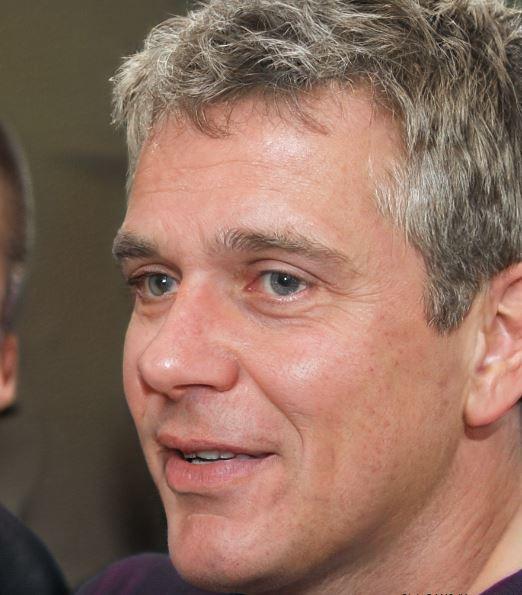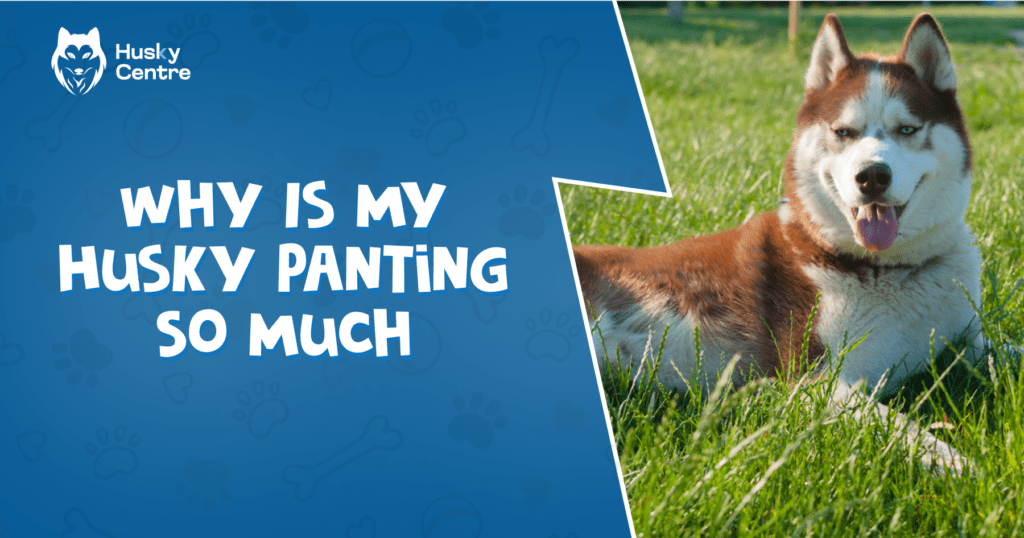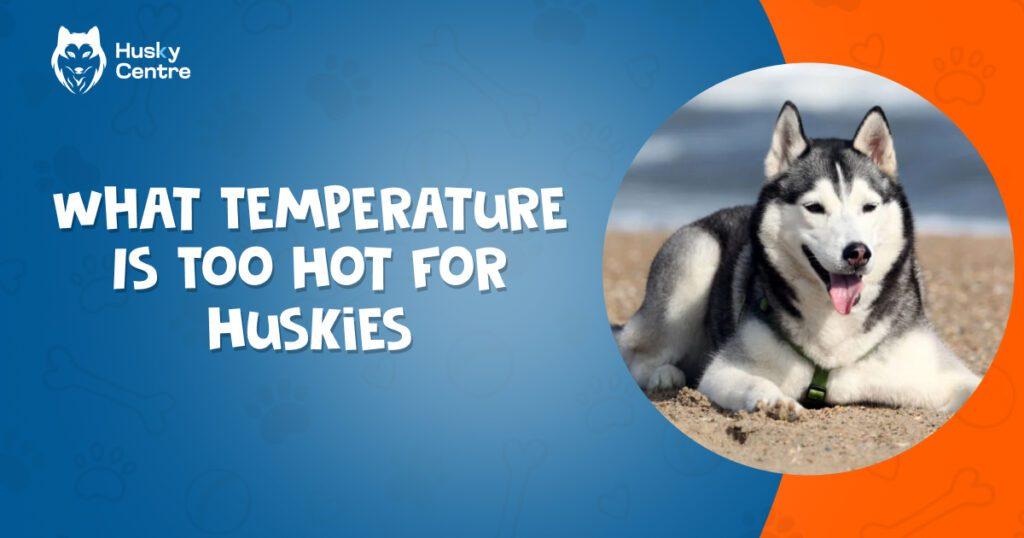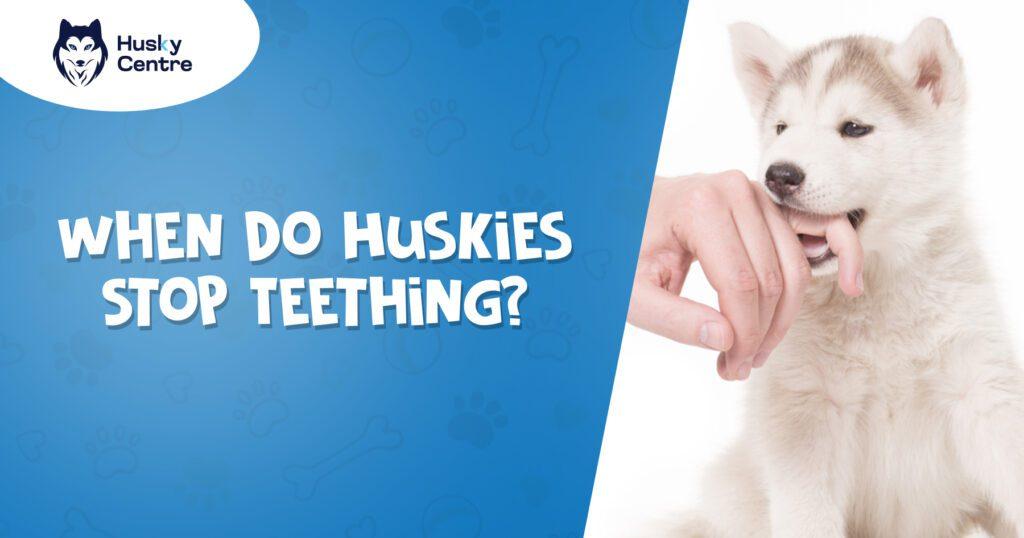Your Husky might be panting excessively due to overheating or stress. It could also indicate a medical issue that needs attention.
Huskies are known for their thick fur and endurance, but sometimes they pant more than usual. Panting helps dogs regulate their body temperature, as they do not have as many sweat glands as humans. Excessive panting in Huskies can result from high temperatures, overexertion, or anxiety.
This article explores the different reasons behind a husky’s panting and helps you determine when it’s time to visit the vet.
Husky Panting Basics
Seeing your Husky pant might make you wonder why they do it so much. Panting in Huskies is a normal behavior, but it’s important to understand the basics. Panting helps the Huskies cool down. Unlike humans, dogs can’t sweat through their skin. They release heat by panting.
If your Husky pants, they might be hot, excited, or just had some fun playtime. But sometimes, panting can signal something more. Let’s dig into the reasons behind a Husky’s panting and explore their unique ways of beating the heat and how their fur plays a role.
How Huskies Beat The Heat
Huskies originate from cold climates, so they have special ways to deal with heat. Their panting is more than just heavy breathing. Here’s how they stay cool:
- Rapid breathing: This helps them move air through their unique coat to cool down.
- Seeking shade: Huskies know to find cool spots and rest there during the heat of the day.
- Spreading out: They often lie on cool surfaces to lower their body temperature.
Check out this table to see what normal panting looks like versus when you should worry:
| Normal Panting | Worrying Panting |
| After exercise | Excessive and without cause |
| During warm days | Combined with anxiety signs |
| When excited | Continuous, even during rest |
Husky Fur
The fur of a Husky is not just for looks. It’s a complex system for survival. Here’s what you need to know about Husky fur:
- Double-coated: Huskies have two layers of fur that help insulate against both cold and heat.
- Shedding: They shed their undercoat in the summer which helps them stay cool.
- Sun protection: Their fur also protects them from harmful UV rays.
It’s vital to maintain their coat properly. Brushing helps remove loose fur and promotes better air circulation. Never shave a Husky’s fur; it can do more harm than good. Here’s a quick guide to their fur care:
| Daily Care | Seasonal Care | Professional Care |
| Regular brushing | More frequent brushing during shedding seasons | Occasional trips to a groomer for deep cleaning |
| Checking for fleas and ticks | Adjusting diet to support skin and coat health | Consulting about the right products for their coat |
Common Reasons For Husky Panting
Huskies are known for their thick fur and endurance, but they pant for various reasons. Panting helps them cool down and can signal excitement, stress, or even health issues. Let’s explore the common reasons for Husky panting to better understand our furry friends.
Heat And Exercise
Huskies thrive in cold climates due to their thick coats. In warmer environments, they pant more to release excess body heat. After exercise, panting increases to cool down and recover. Signs of overheating may include excessive panting, drooling, or lethargy. To prevent this, ensure your Husky has:
- Shade to rest in during hot days.
- Water to stay hydrated.
- Cool indoor spaces when the temperature rises.
Exercise is vital for Huskies, but it should be done during cooler parts of the day. Below is a table with the recommended exercise timing based on the weather:
| Temperature | Exercise Time |
| Below 68°F (20°C) | Morning or Evening |
| Above 68°F (20°C) | Early Morning or Late Evening |
Always monitor your Husky’s breathing and take breaks as needed.
Excitement And Anxiety
Emotions can cause Huskies to pant. Excitement from playtime or greeting family members often leads to brief panting spells. On the other hand, anxiety or fear can trigger panting too. This can happen during thunderstorms, vet visits, or in new situations. Signs your Husky is anxious may include:
- Pacing or restlessness.
- Whining or yelping.
- Trying to hide or escape.
Create a calm environment with familiar toys and bedding to help your Husky relax. Consistent training and positive reinforcement can also reduce anxiety.
Pain Or Discomfort
Panting might indicate pain or discomfort in Huskies. They can’t tell us they’re in pain, so it’s important to watch for signs. These can include:
- Limping or reluctance to move.
- Loss of appetite.
- Excessive licking of a specific area.
If your Husky shows these signs, a vet visit is crucial. Early detection and treatment can prevent more serious issues. Your vet may conduct tests or recommend treatments to help your Husky feel better. Remember, regular check-ups are key to your Husky’s health and well-being.
Is Your Husky Panting Excessively? Warning Signs
Is your husky panting more than usual? Panting helps dogs cool down. But, too much can be a sign of trouble. Let’s explore the warning signs of excessive panting in huskies.
Understanding Normal Panting
First, know what’s normal. Huskies pant after exercise or when it’s hot. This is how they regulate body temperature. But, if your husky pants are without these reasons, pay attention.
Signs Of Excessive Panting
- Constant panting: Even when resting or in cool environments.
- Loud or heavy panting: Sounds louder or more labored than usual.
- Panting at night: Especially if it keeps them from sleeping.
Possible Causes Of Excessive Panting
Several issues can cause heavy panting. Here are a few:
- Heatstroke: A serious condition needing immediate attention.
- Stress or anxiety: Changes in environment or routine can trigger this.
- Health issues: Heart problems, respiratory issues, or pain can lead to heavy panting.
What To Do Next
If you notice these signs, act fast. Start by cooling your husky down. Provide fresh water and a cool place to rest. If panting persists, contact your vet. They can pinpoint the cause and suggest the best treatment.
When To Call The Vet
Seeing your Husky panting a lot can be worrying. You might wonder why it’s happening. It’s important to know when it’s normal and when to call a vet. This guide will help you understand both.
Signs Your Husky Needs A Vet
Some panting in Huskies is normal, especially after play or in hot weather. But, there are times when panting means something more serious. Here are signs to watch for:
- Excessive panting that doesn’t stop with rest
- Difficulty breathing, which might look like gasping
- Blue-tinged gums, indicating not enough oxygen
- Panting at odd times, like at night when it’s cool
Common Causes For Concern
Several issues can cause worrisome panting. Knowing these can help you act fast.
| Issue | Description | Immediate Action |
| Heatstroke | Overheating, possibly life-threatening | Notice symptoms, call the vet |
| Heart Problems | Can cause coughing and fatigue too | Identify the toxin, call a vet immediately |
| Poisoning | Eating something toxic | Identify the toxin, call vet immediately |
What To Tell Your Vet
When you call the vet, be ready to share important details. This helps them prepare.
- Describe the panting: How long, any triggers, and if it’s getting worse.
- Any additional symptoms: Coughing, fatigue, or not eating.
- Your Husky’s recent activities: Like eating something new or heat exposure.
Keeping Husky Cool And Comfortable
Seeing your Husky pant heavily can be alarming. Understanding the reasons and finding solutions is vital for their well-being. Keeping your Husky cool and comfortable is key, especially given their thick fur and high energy levels. This section will explore practical ways to ensure your Husky stays chilled and happy.
Recognizing Normal Panting Vs. Excessive Panting
Normal panting happens when your Husky is hot or after exercise. It helps them cool down. Excessive panting might signal stress, heatstroke, or health issues. Watch for heavy, rapid breaths and signs of distress. If in doubt, contact a vet.
Shade And Shelter: Essentials For Husky Comfort
Provide a cool, shaded area where your Husky can escape the sun. Dog houses should be well-ventilated. Consider adding a fan or cooling mat to their favorite spot.
Hydration: The Key To A Healthy Husky
- Always have fresh water available.
- Use large, spill-proof bowls to keep water cool.
- Add ice cubes to their water on very hot days.
Appropriate Exercise: Timing And Intensity
Exercise your Husky during cooler parts of the day, like early morning or evening. Keep play sessions short when it’s hot. Use indoor games to tire them out without overheating.
Grooming: A Cool Coat For Your Husky
Regular brushing removes loose fur and improves air circulation through their coat. Never shave your Husky; their coat protects them from heat and sunburn.
Diet: Fueling Your Husky’s Body Right
Feed your Husky a balanced diet. Overfeeding can lead to excess weight, making it harder for them to stay cool. Consider giving them cold treats like frozen fruits or special dog ice cream.
Signs Of Overheating: When To Act
| Sign | Action |
| Excessive panting | Move to a cool place, offer water |
| Drooling | Give a drink, apply cool wet cloths |
| Lethargy | Reduce activity, seek shade |
| Confusion | Contact a vet immediately |
Credit: www.youtube.com
Panting As A Signal Of Communication
Panting as a Signal of Communication can often perplex Husky owners. It’s essential to understand that dogs use panting to express various needs and emotions. Your Husky might be trying to tell you something important. Let’s decode what your furry friend is communicating through their panting.
Understanding Your Husky’s Body Language
Dogs can’t speak, so they rely on body language. Your Husky’s panting, paired with body posture, can reveal their feelings. Fast panting with a relaxed body usually means they’re hot or have been exercising. Tense muscles and rapid panting could signal stress or fear. Observe their entire body to understand the message they’re sending.
Deciphering Panting Sounds And Rhythms
Not all pants are the same. A soft, steady pant is normal after playtime. Sharp, loud panting can be a sign of discomfort or pain. Pay attention to the sound and rhythm of your Husky’s panting to assess their well-being.
Panting Linked To Environmental Factors
Huskies are built for cold climates. Warm environments can cause them to pant more. If your home is warm or your Husky has been in the sun, they may pant to cool down. Ensure they have access to shade and water at all times.
When Panting Indicates A Health Issue
Sometimes, panting can be a red flag for health problems. Excessive panting with no clear reason could mean a trip to the vet is necessary. Heart issues, respiratory problems, and even anxiety can cause increased panting. Keep an eye out for other symptoms like lethargy or loss of appetite.
Responding To Your Husky’s Panting Messages
Once you understand why your Husky is panting, you can respond appropriately. They may need a cool place to rest, some water, or your reassurance during stressful times. Responding to their needs strengthens your bond and ensures their happiness and health.
Frequently Asked Questions
Is It Normal For Huskies To Pant A Lot?
Yes, it’s normal for huskies to pant a lot as a way to regulate their body temperature, especially after exercise or in warm weather. Panting helps them cool down efficiently.
When Should I Worry About Dog Panting?
Worry about dog panting if it’s excessive, appears without exercise, or if accompanied by anxiety, coughing, or a blue tongue. Seek immediate vet care in these cases.
Why Is My Dog Panting When Doing Nothing?
Your dog might be panting while resting due to several reasons including heat, anxiety, or health issues like heart problems. Always ensure they’re cool and hydrated. Consult a vet if panting persists or is accompanied by other symptoms, to rule out underlying health concerns.
Why Is My Dog Panting With His Tongue Out?
Dogs pant with their tongues out to regulate body temperature and cool down. This behavior can also indicate excitement, stress, or underlying health issues. If excessive or unusual, consult a vet.
Conclusion
Understanding your husky’s excessive panting is crucial for their well-being. Various reasons, from heat to anxiety, can cause it. Regular vet checks ensure their health stays in check. Remember, observing your furry friend’s behavior closely helps in maintaining their happiness and health.
Always prioritize their comfort and safety.


Meet Jarred, the heart and soul behind HukyCentre. With a deep affection for furry friends, he pours his passion into every word he writes. His genuine love for dogs shines through in his engaging and informative content. As a dedicated dog enthusiast, Jarred’s goal is to share valuable insights and tips that resonate with fellow dog lovers. Join Jarred on the journey as he celebrates the joy and companionship that dogs bring into our lives.



